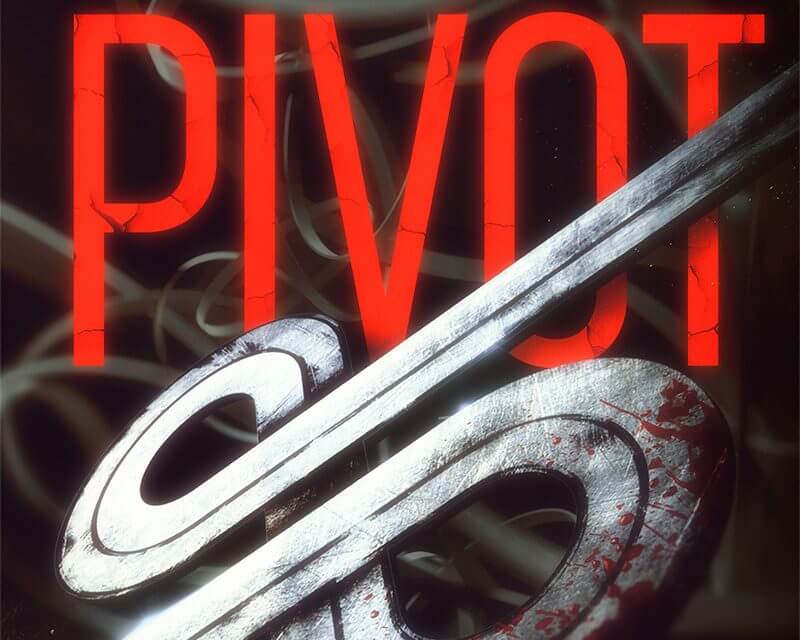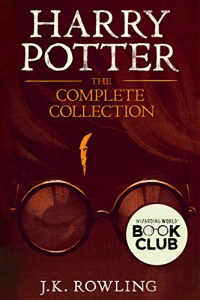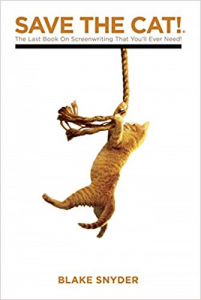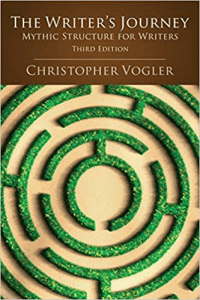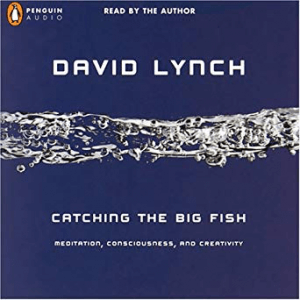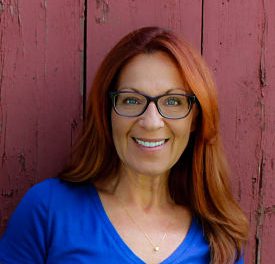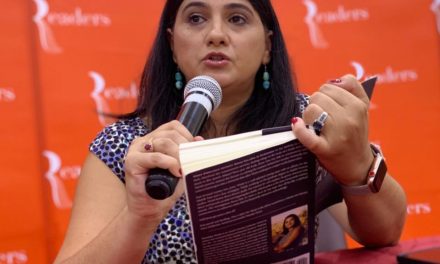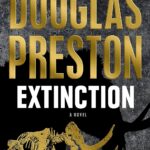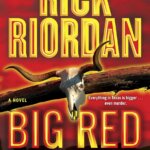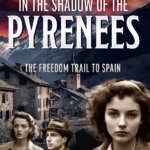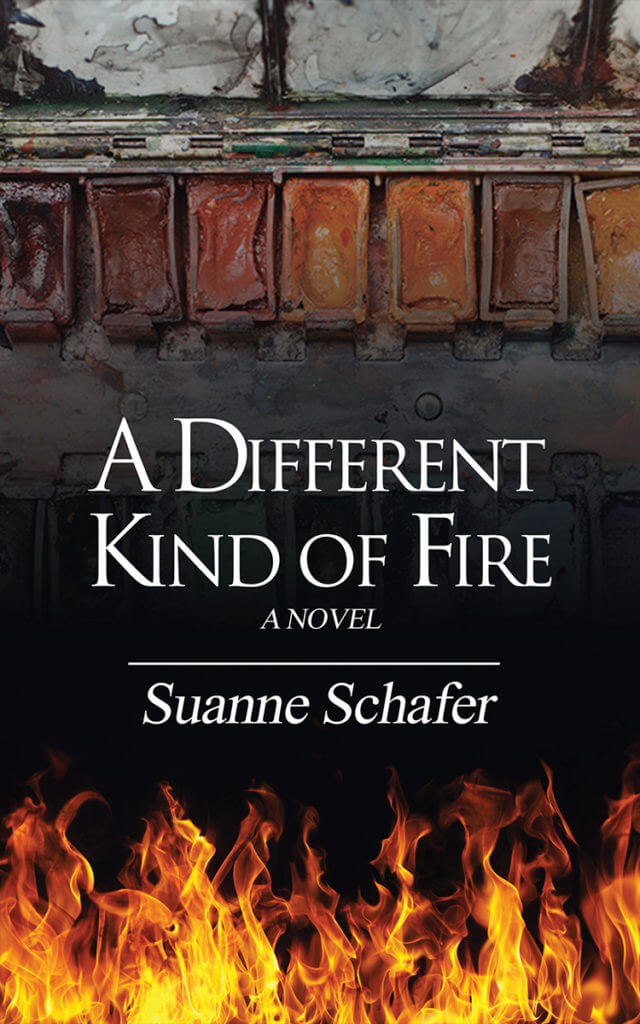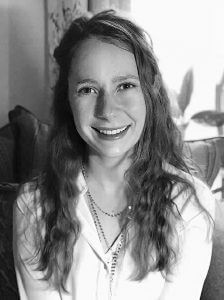
SS: What in your childhood do you believe contributed to your becoming a writer?
LCB: The first time I remember saying that I wanted to be a writer out loud was when I was about twelve and hanging out with some friends in my neighborhood. Though I didn’t say (or admit) the same thing again until my early twenties, it was definitely my heart’s desire. I wrote many short stories when I was young, almost all of which I believe were accidentally deleted or are saved on a floppy disk somewhere, never to be found again. During junior high, my friend Stephanie would also write, and we would read our stories to each other over the phone. Many teachers I had during my childhood said that I would become a writer, and so that may have influenced me. I also think that my father’s illness (he was ill for seventeen years), which started when I was twelve, may have provided some sort of motivation. I was reading Eddie Izzard’s autobiography a few months ago, and he said that whenever he does something, like comedy, he does it with so much dedication and force because, deep down, he’s trying to use it to save his mother, who passed away when he was very young. This made me think on my own life and whether the ferocity with which I pursue all things, including writing, may be due to something similar. My father’s ill health provided a motivation and momentum for me that nothing else could equal.
SS: What’s the first book that made you cry? Made you angry? Made you rejoice?
LCB: This is such an interesting question. The books from my childhood that stick with me most emotionally are The Giver, Walk Two Moons, and Down A Dark Hall. I suppose with The Giver, the book left me with an emotion that I could not identify, and that’s what stuck with me most. Walk Two Moons had a female protagonist who was quirky and thoughtful, someone I could identify with, and it made me feel not so alone, that I deserved recognition for who I was. Down A Dark Hall was just plain creepy, but also beautiful, and probably helped build my interest in horror.
In addition to this, though, I grew up reading Goosebumps and The Bailey School Kids. The Harry Potter series I list as one of the reasons I’m glad I’m alive in this day and age, rather than any other, because I was able to grow up with the books—reading Harry Potter and the Sorcerer’s Stone when I was about twelve and Harry Potter and the Deathly Hallows when I was about twenty.
The book that made me realize I wanted to be a writer, though, was not in any of those series. That particular book I discovered on the floorboard of a car that belonged to the parents of one of my best friends back in high school. As it turned out, it was a copy of The Vampire Lestat. My friend told me to read the first page. I did and discovered pure magic. It was a remarkable moment for me.
I ended up purchasing a set of four Anne Rice novels—her Vampire Chronicles—and read them all, as well as at least ten more, including Blackwood Farm, which became my favorite. Anne Rice’s elaborate, flowery language pulled me in. Lestat, given life by Rice, could seduce his reader, and this was something I wanted to be able to do. I loved words, and I was in awe of the myriad ways they could be made to work, the worlds and characters they could create.
When I hit college, that was when I first successfully read Stephen King. I had attempted to read The Shining in junior high, but the beginning had been too slow and dry for me. This time, I researched what King novel to begin with and, out of my research, ultimately chose Pet Semetary. For very different reasons than with The Vampire Lestat, that novel, too, I quickly fell in love with. There was something about the way it flowed, expertly, never wavering as it slowly lowered its reader into darkness, that I loved. Thus, I continued reading King and have read probably fifteen or so of his books. What amazed me was that King could edge the horror in, bit by bit, expertly, until it resulted in a shocking climax. He had deft control of his story. He could make situations seem real, worlds seem real, in the same way that Anne Rice made characters seem real. It was another type of magic.
My studies in English during my BA and MA ensured my exposure to more literary works that I loved just as much, like Moby Dick (which greatly influenced me), but I also ventured into the sexier, semi-mystery, semi-fantasy, and semi-erotica works of Laurell K. Hamilton right before and then during my MA. I primarily read her Anita Blake series, falling in love with the variety of her characters and the sexiness imbued in each and every one. Though the series often had me rolling my eyes, it also had me smirking, and I devoured about fourteen or so of the novels.
One last literary influence was actually not really a book at all, but rather a theory that I took to heart and mind very earnestly during my MA—Jacques Lacan’s psychoanalytic theory. Lacanian theory aided me not only in deconstructing television series during my first master’s, but also in getting into the psychology of my own characters, of deconstructing them, as well as simply understanding the movements of plot. Though Lacan did not necessarily help me write, he did help me understand. Many times, when encountering new ideas that might have otherwise seemed foreign to me, I am able to hook them onto something in Lacanian theory so that I can more quickly absorb what there is to know. The Lacanian Subject by Bruce Fink is despised by many graduate students, but I truly appreciate everything it offered and don’t know where I would be in my academic or literary career without it. Lacan shows me a different magic—the magic of the human mind.
SS: Writing is undoubtedly a lonely occupation. John Green (The Fault in Our Stars) says writing is a profession for introverts who want to tell you a story but don’t want to make eye contact while doing it. P. D. James (Cover Her Face) says it’s essential for writers to enjoy their own company. Do you see yourself along those lines? Are you a natural loner?
LCB: This question is an important one. I’ll start off by saying that what can be so difficult with writing is the isolation—the four walls around you. It doesn’t matter if those walls are of a mansion or a shack. It’s the same four walls, and they’re always there. You have to get out, you have to live, you have to travel, to go to restaurants and cafes, in order to continue to write, in my opinion. I think this is one of the reasons why writers pursue writing conventions so much. We need them.
Personally, I feel my best self while writing and my best self while traveling and experiencing new things. For me, they have to balance each other. I teach English at a community college, and this helps me in terms of socialization. I do feel like I’m a natural loner because I love to travel alone (I have gone to Prague, Germany, Ireland, New York, New Orleans, and more on my own). At the same time, I do have a few select friends that I see regularly. I cannot speak for all writers, but for me, being alone and writing has to be balanced by some socialization and something besides the four walls and computer.
SS: How does your home and its environment influence your writing? To what extent?
LCB: More and more I have come to understand home as the lighthearted place, filled with love, that is an anchor for me as I reach down into the depths of being while writing. To get emotion on the page, I sometimes feel as though I have to experience five times that emotion as I write. If home is a chaotic place, it’s not safe to feel that kind of emotion because there’s nothing to bring you back down, to return you to a norm. Thus, I feel like the pleasantness I get at home, the safety, the security, is incredibly important for me to write the foreign, the unsafe, the insecure. I suppose we are back to balance!
SS: What advice would you give aspiring writers?
LCB: Remember that the first draft doesn’t have to be perfect. It just has to be written. You can’t revise something that isn’t there.
Once you have a draft, and someone suggests trying something, feel open to trying it. You can have several versions of the same story, and just because you take it a new direction doesn’t mean your old draft disappears if you need to go back to it. Be brave and take your story to foreign places. It’s not foreign, anymore, after you write it.
Do not expect professionals to be mean. Many are some of the kindest people you can meet.
You can only enter a room for the first time once. That’s why it’s important that you get your work to as optimum of a level as possible before submitting it to an agent or editor. Because once they “enter the room” (read your work) for the first time, they can’t see it nearly as objectively after. Your own objectiveness is compromised because you’ve been with the work for so long. That’s why you need workshoppers you can trust (and who know how to get you to emphasize things and back off things without being cruel or mean).
In every story there are “crunchy” and “floaty” items, also known as literal and figurative. The crunchy is the bare facts that ground the story. The floaty is the unnatural, metaphorical things. Often times, writers throw in figurative things to feel better or redeem the story. The reality, though, is that you don’t need to do this. You don’t need to “redeem” the story. The more you add trying to “redeem” the story, the more work you make for yourself when revising. Trust the reader to follow you.
Keep in mind the Hemingway Theory—that 10% of the story is what the author lets the audience see, and 90% is hidden. It’s very much like a glacier—the top 10% is visible, and the bottom 90% is below water. The amount of work you put into a novel is the 90%. When I wrote Pivot, I wrote about five times the amount that the book ended up being. The book is around 280 pages. I definitely wrote over 1,000 pages while constructing it.
Read Save the Cat! by Blake Snyder and The Writer’s Journey by Christopher Vogler. These were books that Nancy Holder (a prolific author and one of my professors) recommended to all of her students in my MFA program. Both books have beat sheets in terms of how a story should move. When I read them, I was so incredibly impressed. Before my MFA, I had written my first novel without any plot guidance. I retroactively compared it with Snyder’s fifteen-point beat sheet. To my surprise, I found that 13/15 elements in my manuscript aligned. That was the Aha! moment of, “Oh, this is why it worked. I know what I did, so now I know what to do.” I regularly return to these books and always learn something new.
SS: Is there a phrase or quote about writing you particularly like or that inspires you?
LCB: Two quotes stick out to me, though they may not particularly be about writing. The first is, “You can’t cheat the grind.” To make progress, to do well, you have to work hard. It’s not romantic, though there are romantic elements. But you can’t cheat it. People will notice when your heart isn’t in it or you have skipped days of work. As I’ve gotten older, I’ve come to understand that the things worth having are usually difficult. It has helped me to accept difficulty – it’s a sign of something good, something worthy.
The second quote that sticks out to me is, “It’s not the size of the dog in the fight; it’s the size of the fight in the dog.” If you really want something, I mean really really want it, then you won’t stop working until you have achieved/produced it, and no one can get in your way—even if they’re bigger than you. There are so many people out there who will try to convince you not to write, that it’s a waste of time, that the book won’t get published. To pursue your own path in the face of that is difficult, but it is also essential, if you want to write… and if you are to become your own person.
SS: Are there any books on writing you find particularly useful and would recommend?
LCB: Yes. Save the Cat! by Blake Snyder and The Writer’s Journey by Christopher Vogler are essential. I also highly recommend Catching the Big Fish by David Lynch.
SS: You’re offered a contract to rewrite your book in another genre. Which genre do you choose and why?
LCB: I would undoubtedly choose literary horror. There’s a big discussion about what makes horror literary versus genre fiction, and a lot of people are trying to redefine “literary horror.” As I understand it, though, and has mostly been the case the past many years, literary horror is not supernatural and not paranormal. When I was originally conceiving Pivot, I did not picture it being nearly as supernatural as it is. I hadn’t conceived of the ferrics, of a world beyond this world, and yet it came about. I think it would be interesting if someone challenged me to remove that element, to make it to where Cyrus doesn’t have otherworldly powers, that there is no world beyond this one. I would love to try to rewrite the book with that constriction because it would take some thought and work.
SS: Was the decision of how to structure the novel obvious?
LCB: Oh gosh no, lol. Pivot originally started out as a self-published novel. When I wrote the self-published version, I wrote one chapter in the past, one in the present, one in the past, one in the present, and so on (so that the novel pivots). Eventually, when several people wanted to work with me on developing the novel to a more professional, publishable level, I ended up building up each of those parts, and when an agent finally accepted it, he wanted to split the book into two novels. At first, I tried to vie for it as one novel, but as things continued on, I realized he was right, and I needed to put in the work. Thus, I separated the books into two parts and built each of them up as their own novel. It was tough. This is hard work and not for the faint of heart.
Both novels worked so much better, and I was so incredibly thankful I had put in the extra work and that my agent had pushed me to do so. I had started an MFA program after getting the agent, and I got the book deal near the end of my MFA. While I was discovering my own problems with having a flash-forward, flashback kind of novel, I was also learning in the program that having too many flashbacks can sometimes be a sign of an amateur writer. Part of this is because a young writer doesn’t yet trust that an audience will maintain its interest in his or her book, and so he or she starts adding these “dun dun dunnnnn” moments of flashbacks. As you continue on, though, honing and honing the book, it becomes apparent that flashbacks are really unnecessary and should be used minimally (maybe once or twice in a book), unless, of course, you’re writing something like the movie Memento. But, even if your first book is Memento, you should eventually establish a firm grasp of a linear plot because it will be one of the necessary tools in your toolbox, even if you decide not to use that tool all the time.
SS: How did publishing your first book change your process of writing?
LCB: My process of writing changed dramatically over the course of producing my first book. Pivot was originally self-published, and when I wrote the novel, I didn’t really know anything about writing. I wrote the chapters alternating between past and present, with two plot lines that complemented one another. When I finally met up with several people who were willing to help me produce a more professional, publishable version of the novel, they helped me to significantly change, enhance, and build those different plotlines. When an agent took on the novel, he wanted me to separate the book into two books. At first, I declined, but as time went on, I realized that the book needed to be separated into two, that my agent was right, and I did so, taking the time to build the first one up and knowing the second one would be the second of the trilogy and that it needed to be built up like the first one.
The thing, though, was that I had really kind of built that first book through trial-and-error. I had written over 1,000 single-spaced pages to produce a 250-page single-spaced novel, and even though I had managed to make it work, I wasn’t exactly sure how.
At this time, I had started an MFA program because I had anticipated this problem. Nancy Holder—an amazing writer, woman, author, person in general—was my professor for two semesters and two residencies, and she told her classes about two books that she uses to help plot books: Blake Snyder’s Save the Cat! and Christopher Vogler’s The Writer’s Journey. I immediately purchased these books and read them. Subsequently, I compared Pivot to see how much its plot points lined up with the fifteen-point beat sheet in Save the Cat! As it turned out, 13 out of 15 points lined up. Thus, I was able to see how I had made the book work and move onward to the next novel. I used the same beat sheet to help finish the second of the trilogy, and I, like Nancy, will most likely use the two beat sheets from these books for every novel in the future. Writing requires so much problem solving, and these books help me better able to address those problems before seeking outside help. They help me produce things that I didn’t know I could produce, and I learn something new every time I read them.
Ultimately, though, after learning how to more effectively plot, I also learned that plotting isn’t everything. There’s just something about letting the novel develop organically that is so important. Really, if you sit down and say exactly what you wanted to say when writing, you’ve kind of failed. It’s only by writing something beyond what you knew to write that you have succeeded – when you write more than you thought you knew. So, when I do pre-emptively plot, I do so while taking it with a grain of salt, and often times the plot shifts dramatically three or four times as I go back and revise.
SS: What is a fun or strange source of inspiration that ended up in your book (a name, location, line of dialogue, etc.)?
LCB: As for Pivot and the Jack Harper trilogy, the inspiration behind it arrived many, many years ago. A friend of mine in high school who was—at least at that time—a Lutheran, invited me to come to a special event her church was having, where an “ex-Satanist” came and spoke about her experiences to the youth group. Looking back on it, I doubt that the woman was an ex-Satanist and strongly suspect it was a scare tactic to make sure the youth group didn’t veer from Lutheranism. Nevertheless, it was just such an eerie speech, an unsettling account of events, and it got me thinking and thinking and playing out scenarios again and again. It was an idea that didn’t leave me, and it sparked an idea, which grew over a decade into something very different.
SS: What was your first recognition/success as an author?
LCB: Pivot, before it became professionally published, started as a self-published novel. Several of the early reviews said, “Love the story. Hate the cover.” So, I contacted a professional book cover company, and in the process of creating the cover, one of their team suggested that I submit my book to multiple book awards, so I did. Pivot ended up as finalist for the Next Generation Indie Book Awards in eBook Fiction, a Winner of the Indie Reader Discovery Awards in Horror, and a Winner of the eLit Awards in Horror. Pivot also made IndieReader’s Best Books of 2014.
In addition, Pivot was one of the first self-published novels to ever be on the preliminary ballot for the Bram Stoker Awards but was not an official finalist. Because of this, I ended up going to my first ever Horror Writers Association and WHC convention in Portland, Oregon in 2014. There, I made many friends and also met two people who would help me improve Pivot far beyond what I could have ever expected.
Ultimately, the self-published version of my novel was downloaded over 65,000 times.
Now, the professionally-published Pivot has received a rave review in Publisher’s Weekly and ALA Booklist. Josh Malerman (NYT Bestselling Author of Bird Box) and Weston Ochse (Award Winning Author of Burning Sky) have written amazing blurbs for the book. Emma Galvin—who voiced the Divergent series—will be voicing the audiobook for Pivot. I am so, so thankful to all of these people and to my publisher, California Coldblood Books.
********************
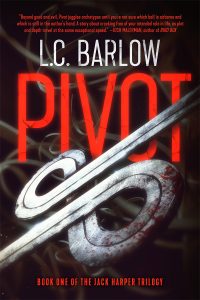
Reviews of Pivot:
Excerpt from Pivot:
“The repetition of these particular lessons helped me—the time and effort I devoted to them. Winning a fight had nothing to do with an instantaneous surge of power and awareness but was about maintaining a sense of normality in the moment. It was about what I could forget. I got used to the sensation of a body against my body, of someone coming at me, the foreign twisting, pulling, and driving. When it became the norm, then it all fell away, much like a common denominator. Only the crosshairs, the target, the wind, the heart, the head, the veins were left. Training meant learning what one should remember and, more importantly, what one should forget. The winner is the one for whom the fight feels most like home.” – Jack Harper, Pivot
********************
L.C. Barlow can be found on social media here:
Website | YouTube Book Trailer | Facebook | Instagram | Twitter
Publishers Weekly Review:
